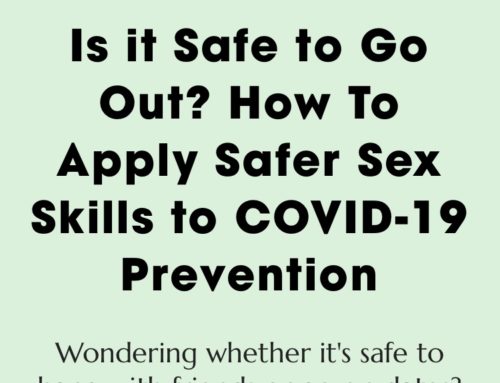
The V-Spot: How Do I Talk To My Partner Directly?
Dear Yana,
I’ve noticed that quite often in your column you point people in the direction of clear, direct communication in relationships; establishing boundaries, asking for what you need, and so on, which is great advice that always feels so simple and elegant when I hear it but…
Do you have any idea how TERRIFYING it can be to talk to your partner directly?!? The vulnerability alone makes me want to curl up into a sweaty ball and disappear forever.
So, my question is this: How do I do it? How do I trust people to listen when I’m trying to be vulnerable? How do I be honest about my needs without being totally and utterly decimated if I’m rejected? How do I not be a jerk if I need to reject someone else? How?!?!
—Wanna Walk The Talk
Dear Walk The Talk,
You ever hear the phrase “Those who can’t do, teach”? Well, those who can’t do also give relationship advice for a living. So, yes! I totally know how TERRIFYING it can be to talk to your partner directly about The Feels. Vulnerable emotions are no joke! And the physiological responses to feeling vulnerable (becoming a disappearing, sweaty ball, perhaps?) makes it even harder to put those feelings into direct words. To make matters worse, your partner is also a person with their own thoughts, feelings, and reactions (how dare they!), which can lead mates into a seemingly never-ending trap of back-and-forth reactivity.
The answer? Divorce! No, not that kind (well, sometimes), but what I mean is divorcing your self-worth from the various possible outcomes of sharing your feelings and needs: sometimes your partner won’t listen well when you share your feelings, sometimes your partner will reject you, and sometimes you will (ungracefully) reject them. Okay, fine, who cares?
We do! We care! Because attached to so many of these behaviors is the primary emotion of fear (TERRIFYING in ALL CAPS) — fear that our feelings aren’t valid, fear that we’re disappointing our partners by setting a boundary, fear that our partners’ boundaries somehow confirm that we are unworthy of connection, fear that our partners’ own inability to listen is proof that we’re not worth listening to.
What I hear in your questions, mostly, is “How can I make sure that my partner will always make it perfectly safe for me to take an emotional risk, before I take said risk?” Well, you can’t. What you (and all of us) can do is practice a little more self-love and a little less taking-everything-personally in our relationships. If we all did this (this is the work I do with my couples therapy clients), easier communication just might follow (and generally, with clients, it does).
Rather than attempt to get better at controlling our partners’ reactions to us, it’s more valuable to work on bolstering our individual abilities to cope with our fears. This can look like reframing your partner’s boundaries as a safe container around them rather than a fence keeping you away, sharing your feelings as a practice in being honest with your partner rather than a bid for a certain kind of reaction, and saying “No” as setting kind limits for yourself rather than cold-hearted rejection of your partner.
When we act from a place of fears-only, we end up with behaviors like being a jerk when we say “No,” curling up into a sweaty ball instead of speaking calmly and confidently about our vulnerable feelings, and being “totally decimated” when our partners react differently than how we hoped they would.
When we feel more sure that we can handle fear, rejection, and reaction, suddenly the alternatives become so obvious! Want to trust more? Trust more! Want to be honest about your needs? Be honest about them! Want to stop being a jerk? Cut it out! And know that no matter the outcome of these risks, you can and will cope with them.
I said “obvious,” not “easy.” Undoing internalized fears of rejection, abandonment, and unlovability is a skill that takes practicing and will likely never be perfected. A great place to start is with Brene Brown’s book Daring Greatly: How the Courage to Be Vulnerable Transforms the Way We Live, Love, Parent, and Lead.
Yana Tallon-Hicks is a relationship therapist, sex educator, and writer living in the Pioneer Valley. You can find her work and her professional contact information on her website, yanatallonhicks.com.


